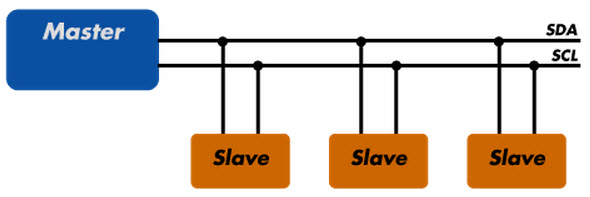How to Interface I2C-IOExpander with 8051 Microcontroller
The term I2C or IIC abbreviation is an inter integrated circuit and it is called as I squared C. I2C is a serial computer bus, which is invented by NXP semiconductors previously it is named as Philips semiconductors. The I2C bus is used to attach low speed peripheral integrated circuits to microcontrollers and processors. In the year 2006, to implement the I2C protocol no licensing fee is necessary. But fee is necessary to get I2C slave address assigned by NXP semiconductors.
Interface I2C Bus-IOExpander with 8051 Microcontroller
What is I2C Bus
I2c bus uses two bidirectional open-drain lines such as SDA (serial data line) and SCl (serial clock line) and these are pulled up with resistors. I2C bus permits a master device to start communication with a slave device. Data is interchanged between these two devices. Typical voltages used are +3.3V or +5V although systems with extra voltages are allowed.
 |
| I2C Interface |
IOExpander
General-purpose input/output (GPIO) expanders are a simple, cost-effective way to monitor and control several peripheral signals. They make it easy for designers to add extra I/O to their design and thereby free up the microprocessor’s GPIO for other, more important functions.
| I2C - Bus GPIO Expander Application Example |
The I2C-bus allows easy two-line communication between two devices using a serial data line (SDA) and a serial clock line (SCL) and, as a result, is a popular choice for computing, consumer electronics, communication, and industrial systems.
| I2C communication Protocol and Timing Diagram |